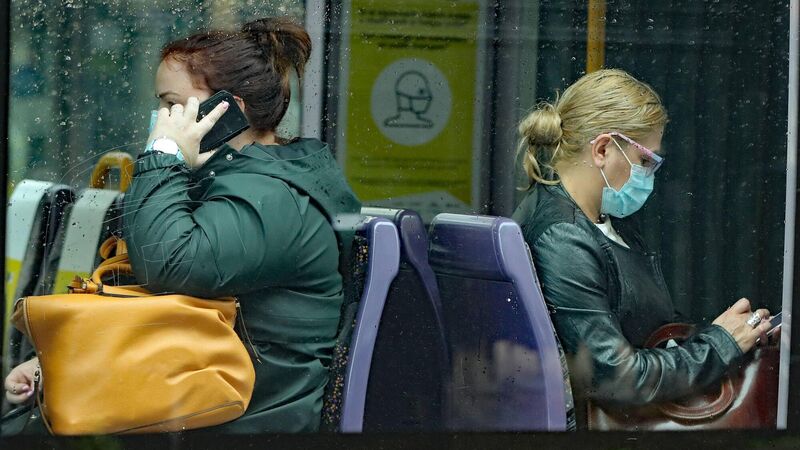Joyce Fegan: Is it now we count the cost of Covid on our lives?

Public travelling on the Luas a day after mandatory wearing of facemasks was introduced Picture: Niall Carson/PA Wire
Two years of mask-wearing, hand sanitising, and social distancing later, I’m writing this with Covid-19.
It’s ironic to be beginning a period of isolation the same week Nphet recommended the ending of compulsory mask-wearing — a move that has been seen by some as the most definitive sign that we are returning to normal after two years of a pandemic.












